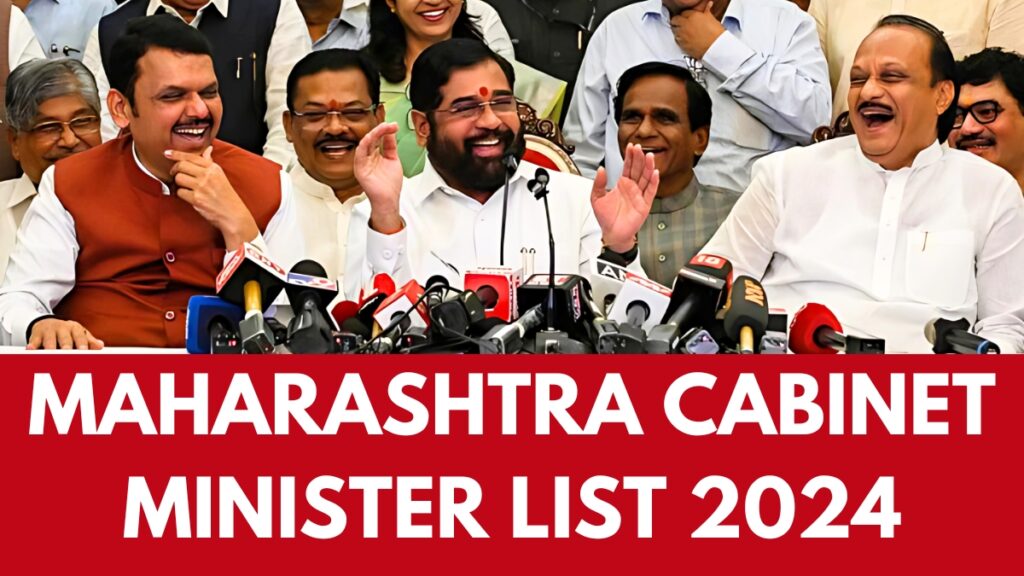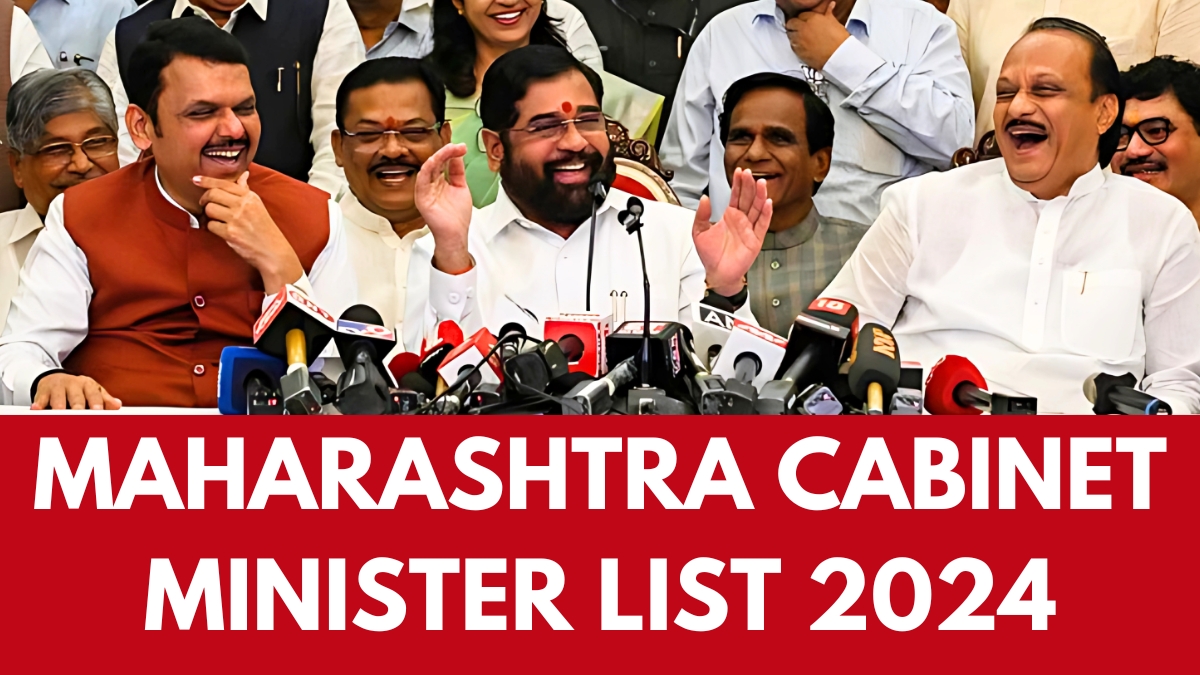Maharashtra Cabinet 2024: The political landscape of Maharashtra has undergone a significant transformation with the recent expansion of the state cabinet, which took place on December 15, 2024. This event, marked by the swearing-in of 39 ministers in Nagpur, signals a new chapter for the Bharatiya Janata Party (BJP)-led Mahayuti government following their decisive victory in the recent assembly elections. The cabinet formation reflects the coalition’s commitment to governance and stability as it prepares for the upcoming winter session of the legislature.
Maharashtra Cabinet 2024 A Historic Oath Ceremony
The swearing-in ceremony was officiated by Maharashtra Governor CP Radhakrishnan at Raj Bhavan, marking a rare occasion as it was the first such event held in Nagpur since 1991. Chief Minister Devendra Fadnavis, who was sworn in just ten days prior, led the proceedings alongside his deputy chief ministers, Eknath Shinde and Ajit Pawar. Fadnavis expressed gratitude to the electorate for their support and emphasized the government’s focus on delivering on its promises.
The Mahayuti alliance emerged victorious in the 2024 Maharashtra Legislative Assembly elections, securing a total of 235 seats, with the BJP claiming 132 seats, followed by Shiv Sena with 57 and Nationalist Congress Party (NCP) with 41. This coalition’s strength is crucial as it navigates governance challenges and public expectations.

Ministerial Composition and Key Portfolios
The newly expanded Maharashtra Cabinet 20240consists of:
- 19 Ministers from BJP
- 11 Ministers from Shiv Sena
- 9 Ministers from NCP
This distribution highlights the collaborative nature of the coalition while also reflecting internal power dynamics. Notable appointments include:
- Chandrashekhar Bawankule (BJP) – A prominent figure and state party president.
- Radhakrishna Vikhe Patil (BJP) – An experienced politician previously associated with Congress.
- Gulabrao Patil (Shiv Sena) – Retains his position after aligning with Eknath Shinde during party splits.
- Hasan Mushrif (NCP) – A seasoned leader with a significant role in regional politics.
The cabinet also features several new faces who are expected to bring fresh perspectives to governance. The allocation of portfolios is anticipated to mirror previous arrangements, with BJP retaining key ministries such as home, finance, education, and power.
Insights from Political Experts
Political analysts view this cabinet expansion as a strategic move to consolidate power within the coalition. Dr. Neelam Joshi, a political science professor at Mumbai University, commented, “The composition of this cabinet reflects not only party strengths but also the necessity for stability in governance. Each minister brings unique expertise that can address specific regional issues.”
Furthermore, experts note that this cabinet formation comes at a critical time as Maharashtra faces various socio-economic challenges including infrastructure development, education reforms, and health care improvements.
Public Reception and Future Implications
The public response to the new cabinet has been mixed. While many citizens express hope for effective governance under Fadnavis’s leadership, others remain skeptical about whether the coalition can overcome its historical rivalries and work cohesively for the betterment of Maharashtra.
As the winter session of the state legislature approaches on December 16, 2024, all eyes will be on how this new cabinet addresses pressing issues such as unemployment rates and agricultural distress—factors that significantly influenced voter sentiment during the elections.
Conclusion
The recent expansion of Maharashtra’s cabinet underlines a pivotal moment in state politics. With a blend of experienced leaders and newcomers, this government is tasked with navigating complex challenges while fulfilling electoral promises. As they embark on this journey, stakeholders from various sectors will be closely monitoring their actions and decisions.
Moving forward, it will be crucial for Chief Minister Devendra Fadnavis and his team to maintain transparency and demonstrate accountability to build public trust and foster a collaborative environment among coalition partners. The success of this cabinet will ultimately depend on its ability to deliver tangible results that resonate with the people of Maharashtra.




